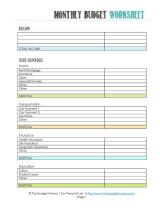Are banks a safe place to keep your money?
Yes, banks are generally considered safe places to keep your money. Here's why:
Federal Deposit Insurance Corporation (FDIC): In the United States, most banks are insured by the FDIC, which provides deposit insurance. The FDIC insures deposits up to $250,000 per account owner, per bank. This means that even if the bank fails, your deposits up to this limit are protected. It's important to note that this insurance covers traditional deposit accounts, such as savings accounts, checking accounts, certificates of deposit (CDs), and money market accounts.
National Credit Union Administration (NCUA): Credit unions are insured by the NCUA, which provides similar protections to the FDIC. The NCUA insures deposits up to $250,000 per account owner, per credit union.
Regulation and Oversight: Banks and credit unions are heavily regulated and supervised by government agencies. This oversight helps ensure that they follow strict financial and operational guidelines.
Physical Security: Banks have physical security measures in place, including alarm systems, security guards, and surveillance cameras, to protect their branches and vaults.
Cybersecurity: Banks invest heavily in cybersecurity to protect your accounts and personal information. They use encryption, multi-factor authentication, and other security measures to safeguard online and mobile banking.
Financial Stability: Banks are required to meet certain capital and liquidity requirements to ensure they can handle financial challenges. Additionally, larger banks often have a higher level of financial stability due to their size and diversification.
While banks are generally safe, it's essential to consider the following:
FDIC/NCUA Limits: Make sure your deposits do not exceed the FDIC or NCUA insurance limits. If you have more money to deposit, consider spreading it across multiple accounts or banks to ensure full coverage.
Choose Reputable Institutions: Opt for well-established banks or credit unions with a solid reputation for financial stability and customer service.
Stay Informed: Keep an eye on your account statements, monitor your transactions regularly, and report any suspicious activity to your bank.
Use Strong Authentication: When banking online, use strong, unique passwords and enable multi-factor authentication for added security.
Understand Account Terms: Be aware of any fees associated with your accounts and any account terms that may affect your access to funds.
Overall, banks provide a secure and convenient way to manage your money. However, it's wise to stay informed about the specific protections and services offered by your bank and take steps to protect your own financial security.












